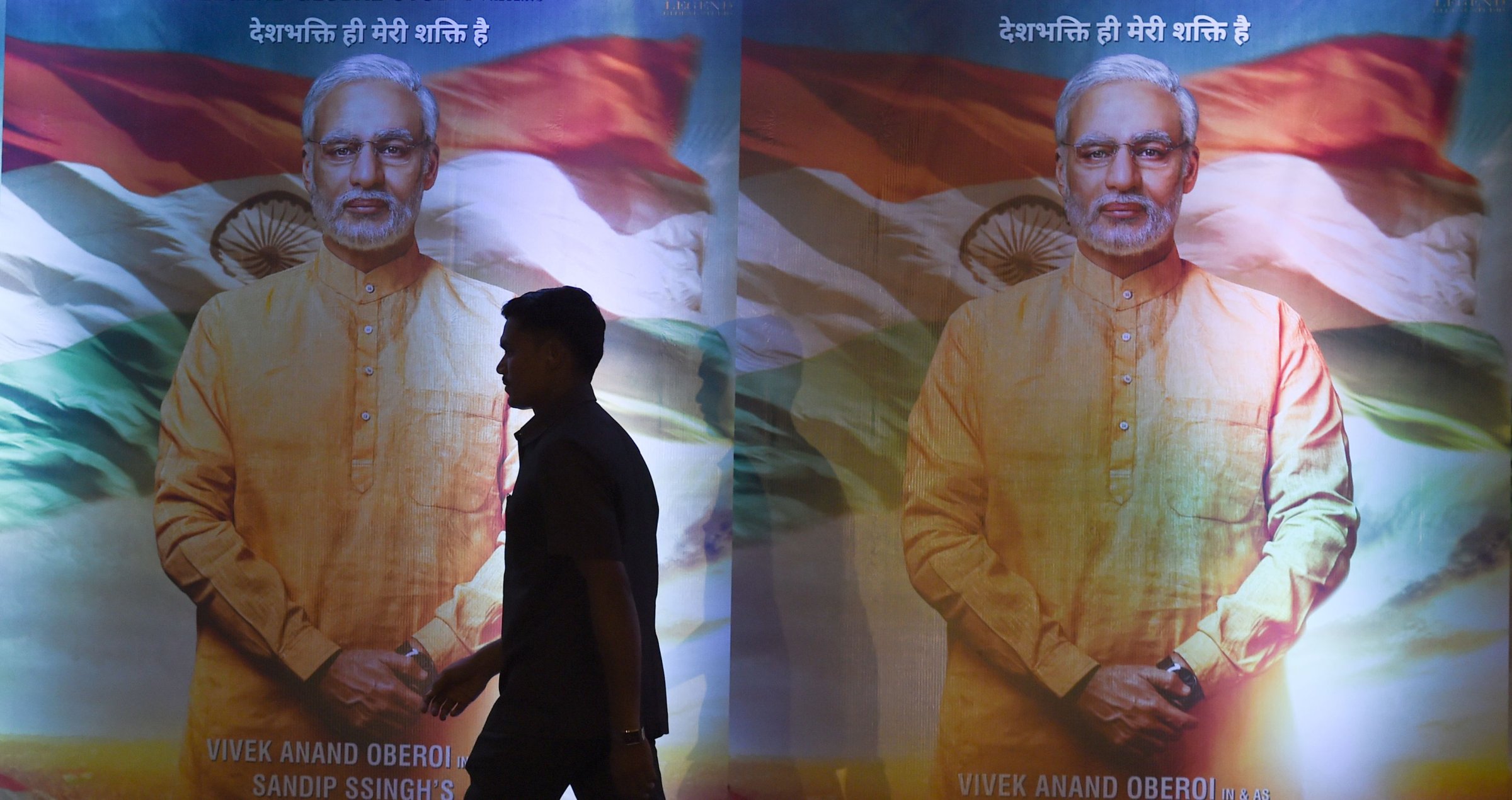
In a recently released trailer for PM Narendra Modi, a biopic of the Indian prime minister, actor Vivek Oberoi, playing the Indian leader, stares angrily into the camera and declares: “I am warning Pakistan: if you dare raise your hand against us again, we will chop it off.”
That would be inflammatory at the best of times, but this comes just weeks after tensions between the nuclear-armed neighbors escalated to alarming levels, following a deadly attack in Indian-administered Kashmir on Feb. 14 that killed 40 Indian military personnel. It was purportedly carried out by the same Pakistan-based terrorist outfit responsible for a 2016 attack on an Indian Army brigade that killed 17.
The 2016 attack (and a subsequent retaliatory operation by India) was the subject of its own Bollywood release on Jan. 11, Uri: The Surgical Strike, which also featured a fictionalized portrayal of Modi. Such films, coming so soon before India’s general election begins on Apr. 11, have drawn fire from opposition politicians, who say they are little more than propaganda. While PM Narendra Modi, which releases on Apr. 5, has no reported financial ties to Modi’s Bharatiya Janata Party (BJP), Oberoi is a staunch Modi supporter, and BJP leaders also attended promotional events for the film.
“They are doing hagiographical portrayals of real-life characters without looking at the subtler nuances of politics,” Namrata Joshi, a film critic with Indian newspaper The Hindu, tells TIME.
Uri, the highest grossing Bollywood film so far in 2019, certainly sparked a wave of jingoism across the country. “How’s the josh?”—a popular exhortation from the film (josh means passion or zeal)—went viral on social media and has been uttered by Modi and other senior ministers at public events. References to the film were also made in the wake of the Kashmir attack, when the cinematic image of Modi as a strong patriarch, able to take on India’s enemies, found resonance among the many who called for stern action against Pakistan.
There have been films attacking Modi’s political enemies as well. The Accidental Prime Minister, released on the same day as Uri, was a damning depiction of the 2004 to 2014 tenure of India’s former Prime Minister, Dr. Manmohan Singh of the Indian National Congress. It also took a dig at Modi’s primary political rival, current Congress president Rahul Gandhi, who was portrayed as confused and lacking confidence. Unsurprisingly, the film was enthusiastically talked-up by the BJP.
Experts say such films can play a role in changing public perception among India’s large numbers of illiterate adults, who are voracious consumers of television and movies.
Not to be outdone, supporters of opposition leader Gandhi will be flocking to his biopic, My Name is RaGa, which is expected to release sometime in April. The trailer shows the fictionalized Gandhi invoking the memories of his father and grandmother, both former prime ministers and both assassinated, calling them martyrs who gave their lives for the country.
“Bollywood is not just a form of entertainment but also a parallel form of information which serves as a form of visual literacy for people from the lower and lower-middle class,” Rajinder Dudrah, professor of cultural studies at Birmingham University in the U.K., tells TIME.
The movie industry plays such a central role in popular Indian culture that several prominent actors have even found a place in temples, where they are literally idolized and worshiped. Many actors have also parlayed their on-screen reputations into successful, real-life political careers. Some call this a form of exploitation.
“It is all about working the optics and colonizing the minds of the audience,” Shubhra Gupta, a film critic with The Indian Express, tells TIME. “A narrative is being built clearly, smartly and very insidiously.”
More Must-Reads from TIME
- Cybersecurity Experts Are Sounding the Alarm on DOGE
- Meet the 2025 Women of the Year
- The Harsh Truth About Disability Inclusion
- Why Do More Young Adults Have Cancer?
- Colman Domingo Leads With Radical Love
- How to Get Better at Doing Things Alone
- Michelle Zauner Stares Down the Darkness
Write to Abhishyant Kidangoor at abhishyant.kidangoor@time.com